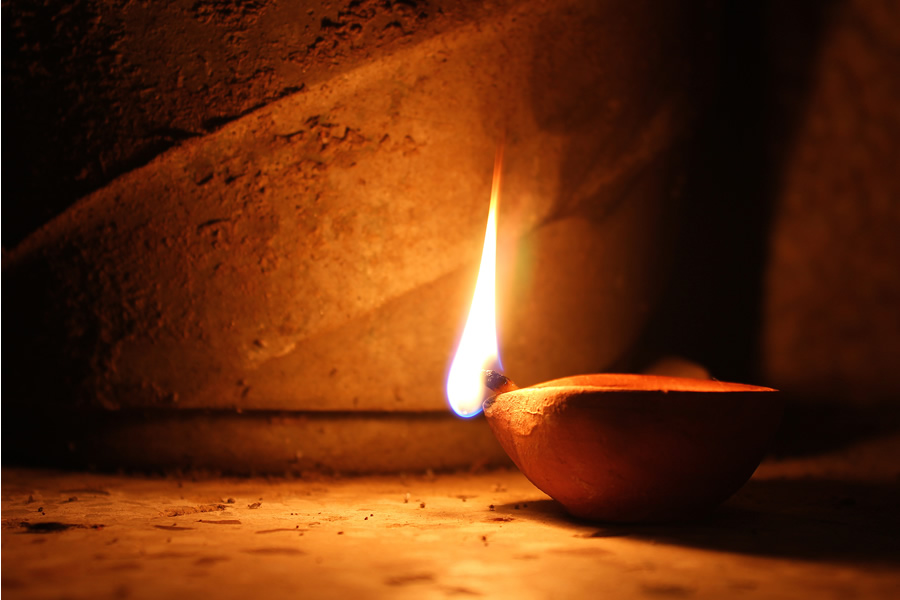
Members of the Wedding
11-12-2023Weekly ReflectionDr. Scott HahnAccording to marriage customs of Jesus’ day, a bride was first “betrothed” to her husband but continued for a time to live with her family. Then, at the appointed hour some months later, the groom would come to claim her, leading her family and bridal party to the wedding feast that would celebrate and inaugurate their new life together.
This is the background to the parable of the last judgment we hear in today’s Gospel.
In the parable’s symbolism, Jesus is the Bridegroom (see Mark 2:19). In this, He fulfills God’s ancient promise to join Himself forever to His chosen people as a husband cleaves to his bride (see Hosea 2:16–20). The virgins of the bridal party represent us, the members of the Church.
We were “betrothed” to Jesus in Baptism (see 2 Corinthians 11:2; Ephesians 5:25–27) and are called to lives of holiness and devotion until He comes again to lead us to the heavenly wedding feast at the end of time (see Revelation 19:7–9; 21:1–4).
As St. Paul warns in today’s Epistle, Jesus is coming again, though we know not the day nor the hour.
We need to keep vigil throughout the dark night of this time in which our Bridegroom seems long delayed. We need to keep our souls’ lamps filled with the oil of perseverance and desire for God— virtues that are extolled in today’s First Reading and Psalm.
We are to seek Him in love, meditating upon His kindness, calling upon His name, striving to be ever more worthy of Him, to be found without spot or blemish when He comes.
If we do this, we will be counted as wise and the oil for our lamps will not run dry (see 1 Kings 17:16). We will perceive the Bridegroom, the Wisdom of God (see Proverbs 8:12–21, 35; 9:1–6), hastening toward us, beckoning us to the table He has prepared, the rich banquet which will satisfy our souls.
Comentario al Evangelio del Domingo
El Maestro se sirve de esta parábola para recomendar la necesidad de estar siempre bien preparados para recibir al Señor cuando se presente, ya que no sabemos el día ni la hora. Vendrá al final de los tiempos, pero también saldrá al encuentro de cada uno de nosotros cuando llegue el final de nuestra vida terrena para juzgarnos. “Llegará aquel día – recordaba san Josemaría – que será el último y que no nos causa miedo: confiando firmemente en la gracia de Dios, estamos dispuestos desde este momento, con generosidad, con reciedumbre, con amor en los detalles, a acudir a esa cita con el Señor llevando las lámparas encendidas. Porque nos espera la gran fiesta del Cielo”.
La imprevisión o el atolondramiento, el retrasar el arrepentimiento o la confesión, dilatar las decisiones de entrega, pueden privarnos para siempre de la gloria. En cambio, una vida vivida cara a Dios, sin descuidar detalles, nos puede abrir la puerta del cielo, como sucedió a aquellas amigas de la novia, que fueron previsoras, y entraron a disfrutar de la fiesta, mientras que las otras se quedaron fuera. Aquellas muchachas “No supieron o no quisieron prepararse con la solicitud debida, y se olvidaron de tomar la razonable precaución de adquirir a su hora el aceite. Les faltó generosidad para cumplir acabadamente lo poco que tenían encomendado. Quedaban en efecto muchas horas, pero las desaprovecharon”, seguía comentando san Josemaría.
De ahí que nos invitase a reflexionar y sacar propósitos: “Pensemos valientemente en nuestra vida. ¿Por qué no encontramos a veces esos minutos, para terminar amorosamente el trabajo que nos atañe y que es el medio de nuestra santificación? ¿Por qué descuidamos las obligaciones familiares? ¿Por qué se mete la precipitación en el momento de rezar, de asistir al Santo Sacrificio de la Misa? ¿Por qué nos faltan la serenidad y la calma, para cumplir los deberes del propio estado, y nos entretenemos sin ninguna prisa en ir detrás de los caprichos personales?”
BACK TO LIST